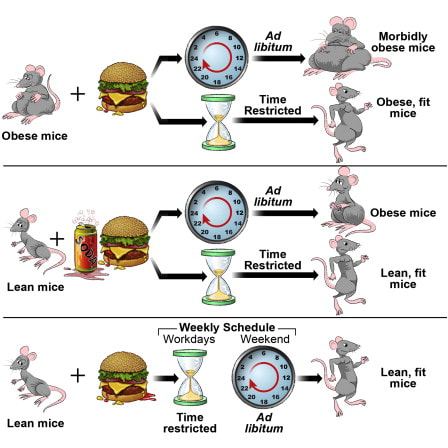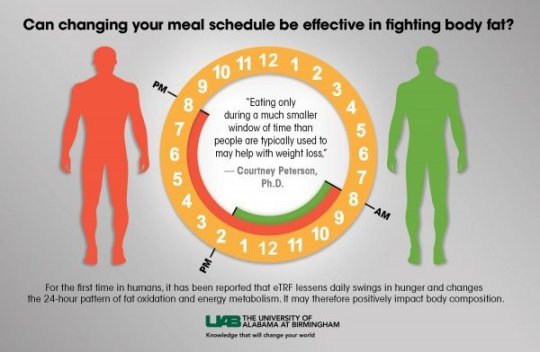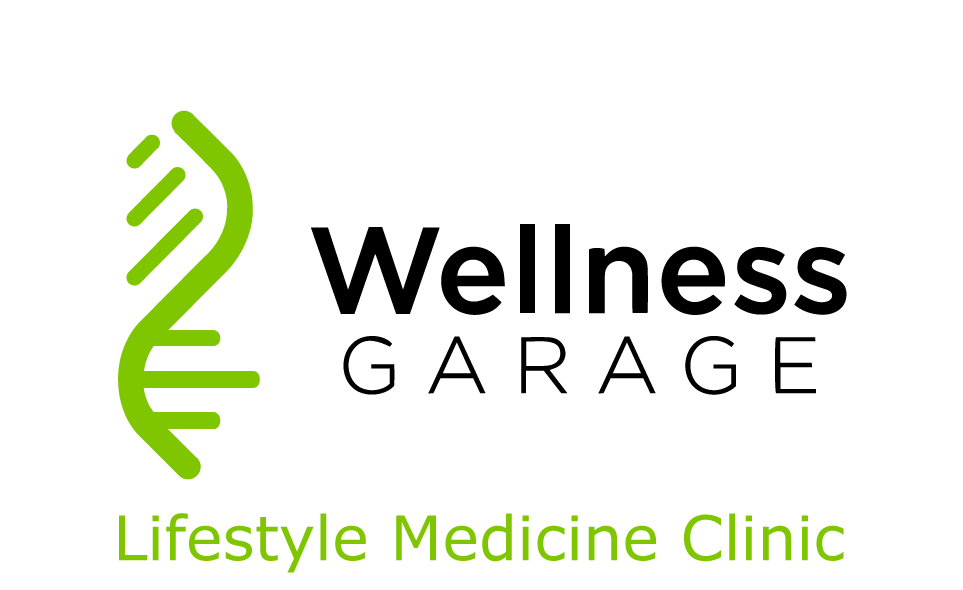|
“Eat like a king in the morning, a prince at noon, and a peasant at dinner.” Maimonides (1135–1204), a medieval Jewish philosopher/doctor After eliminating refined carbohydrates from your eating, the next food recommendation we give clients looking to optimize their health and longevity is “time restricted eating”. What does this mean? Time restricted eating is a form of Intermittent Fasting (IF) where you eat all of your calories within a defined interval of time - generally 8 to 12 hours. This simple habit, has profound impact, likely due to two related evolutionary mechanisms:
To really understand why let’s step into the science. Life has evolved under the strong influence of the light and dark cycle. The predictable, 24 hour, diurnal rhythm has led evolution to develop internal timing mechanisms known as circadian (from the Latin words, circa diem, about a day) rhythms that are foundational to our biological systems. Fundamental to these rhythms is the ability to acquire food when it is available, and utilize the derived energy throughout the rest of the day, without impairing the organism’s fitness and vitality. A wide array of physiological and metabolic variations depend on the time of the day, including:
The past two decades have witnessed a remarkable increase in our knowledge of how circadian biology is controlled, both from physiological and molecular standpoints. Briefly, circadian rhythms are controlled by a master or “central” clock that is located in the hypothalamus within a paired structure known as the suprachiasmatic nucleus (SCN). The SCN oscillates on a 24hr rhythm independent of external input, but can be reset (or upset) in response to external cues. The SCN synchronizes other peripheral clocks which are thought to exist in all tissues in order to coordinate physiological processes. The clock adapts to environmental changes, specifically daily light-dark cycles, as well as rhythmic food intake. Nutritional challenges reprogram the clock, while time-specific food intake has been shown to have profound consequences on physiology. Elucidating the molecular mechanisms by which circadian rhythm is controlled earned Jeffrey C. Hall, Michael Rosebush and Michael W. Young the 2017 Nobel Prize in Medicine. Their work describes how specific transcription factors CLOCK and BMAL1 regulate the transcription of a large number of clock-controlled genes throughout the body in tissue-specific patterns allowing for the circadian regulation of cellular, metabolic, and physiological functions. A large fraction (30-40%) of the human genome appears to be under clock control. Studies of human metabolism shows that ∼15% of all identified metabolites oscillate in a circadian manner. Both food and light are powerful controllers that can reset (or upset) the circadian rhythm. Limiting feeding to less than 12 hours per day, a practice known as time restricted eating has been shown to protect against obesity, hyperinsulinemia, hepatic steatosis, and inflammation even when subjects are eating high fat, high carbohydrate, poor quality diets. These positive effects continue even after subjects stop time restriction and hold when applied only 5 days per week. The biggest caveat to this research at this point is that most of the evidence comes from mice, human studies have been indirect and correlative. Clearly more work needs to be done. With time restricted eating, one component of the benefit clearly comes from alignment with baseline circadian physiology - the other comes from the benefits of fasting. The fasting period serves as a period of repair and restoration with a set of certain biological processes that are only triggered in a fasting state known as fasting physiology. From an evolutionary perspective, the ability to survive periods of starvation makes sense. Starting from simple celled organisms, cells reprogram themselves during periods of fasting. The mechanisms of fasting physiology are evolutionarily preserved and present in all organisms. Inducing fasting physiology not only enables survival but also extends lifespan and does so in a preserved fashion with common mechanisms from single cell organisms to rodents. Reduced energy intake, or caloric restriction (CR), is known to extend life-span and to retard age-related health decline in a myriad of species, including nonhuman primates. Studies in obese patients show that CR can significantly decrease weight while improving cardiovascular risk factors, insulin sensitivity, and mitochondrial function. Two major challenges emerge from CR, one - it is very hard to sustain; and two - when sustained it results in decreased lean muscle and loss of strength which is of course not ideal for vital longevity. Efforts to gain the benefits of CR in a sustainable manner have led to the increasing popularity of intermittent fasting (IF). IF can take many forms but essentially involves fasting for periods of 12 hours or longer:
IF regimens have been shown to:
One key to these beneficial effects appears to be the “flipping” the metabolic switch:
This shift happens through a myriad of intracellular regulators including AMPK, mTOR and FOXO1 and results in cells cleaning up damaged intracellular proteins and organelles such as mitochondria. This self-cleaning process called autophagy is one of the most important functions of fasting physiology associated with anti-ageing and longevity. We know that oxidative stress and inflammation suppress autophagy, and suppressed autophagy leads to cellular inflammation and oxidative stress - a vicious cycle linked to both ageing and cancer. Our lifestyles, starting with the presence of artificial light allow us to be active throughout the full 24 hour day. Combined with the abundance of food, it is not uncommon for many people to consume some calories throughout every waking hour. Finally given the chronic sleep deprivation, endemic in our societies, many people may only be in a fasted state 6 hours or less. The challenge for these people is two fold:
At Wellness Garage we work with our clients to build habits that align with the natural processes of the body: circadian rhythms and fasting physiology in order to optimize health. For most people implementing these simple habits is simple, having profoundly positive effects (with little to no downside):
|
AuthorDr. Brendan Byrne Categories
All
|



 RSS Feed
RSS Feed
